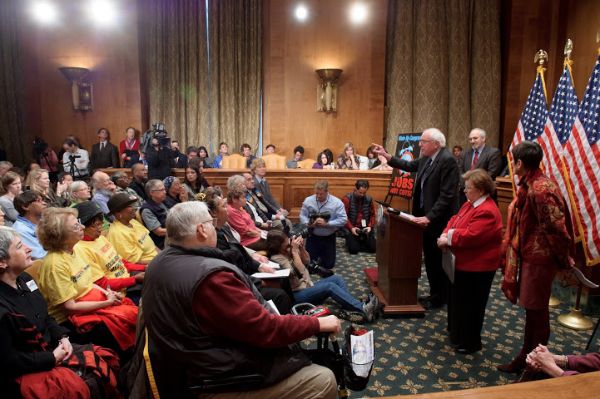Sufficient Support from Social Security Benefits in Jeopardy


Almost every American reaching retirement age is expecting support from Social Security benefits. An earner’s pay-in to the Social Security system and retirement age affect when they can enter retirement with benefits and how much money the government will be paying in Social Security income. As the federal deficit balloons and the fiscal cliff seems farther from resolve, the age of onset for Social Security benefits and the amount of payout has become an important issue for all Americans, not just soon-to-be retirees.
The Current Social Security System
Social Security is the federal government’s single largest program. It provides benefits to retired workers, people with disabilities and their families, as well as to survivors of some deceased workers. These benefits are financed primarily through payroll taxes collected from people’s earnings. The payroll taxes are put into two trust funds from which benefits are paid, as long as the trust funds have sufficient balances.
Under the current Social Security system, the full retirement age is 67, which was part of the Social Security Amendments put in place by the Greenspan Commission in 1983. The age set for early retirement is 62, which is the age of eligibility when someone accepts reduced retirement benefits.
Problems with the Current System
The current Social Security system is strained financially. In 2010, for the first time since the enactment of the Social Security Amendments of 1983, Social Security’s annual payouts exceeded its annual tax revenues. The Congressional Budget Office anticipates that starting in 2016 - if current laws remain the same - annual spending for Social Security will regularly exceed its tax revenues.
Social Security is a large part of the American debt problem and may be included in the severe automatic cuts that would result from an unresolved fiscal cliff. Lloyd Blankfein, the CEO of Goldman Sachs, commented on the effects of the fiscal cliff, stating, “The retirement age has to be changed, maybe some of the benefits have to be affected...entitlements have to be slowed down and contained.”
Whether there is a change to the retirement age or benefits are reduced, it is clear that to remain sustainable Social Security needs modification.
Reducing Payouts for High Earners
The increased life expectancy of high earners has been used as the basis for the argument that reducing benefits for high earners is a viable means to decrease the financial strain on the Social Security system, since high income individuals tend to have a greater life expectancy than low income individuals. As such, higher earners can expect to receive more Social Security benefits because of their projected longer lifespan.
According to a 2007 study released in the Social Security Bulletin that measured changes in life expectancy based on socioeconomic status over a thirty year period, the increase in life expectancy over the last thirty years among men aged 65 has been significantly greater for the top half of earners, while the bottom half of earners are barely gaining in life expectancy. Simply put, higher earners live longer and therefore reducing their benefits would alleviate some of the strain on the Social Security system.
Raising the Retirement Age
Raising the retirement age is another proposed solution to solve the Social Security crisis. According to the Congressional Budget Office, raising the retirement age to 70 would solve approximately half of the Social Security funding problem, but not all of it.
If the age of eligibility were to be raised above the age of 62, lower earners would be hardest hit. Lower earners, who have a shorter life expectancy, would receive fewer benefits than higher earners, who typically retire later in life and live longer. Peter Diamond, Institute Professor Emeritus of Economics at the Massachusetts Institute of Technology and an expert on public finance, stated:
“If anyone stood up and said, ‘Instead of doing uniform across the board cuts, let’s make them a little worse for people who have shorter life expectancies and lower earnings,’ they’d be laughed at.”
However, he notes that in 1983 with the enactment of the Social Security Amendments, “there was a clear sense that increasing the age for full benefits was thought to play better.”



